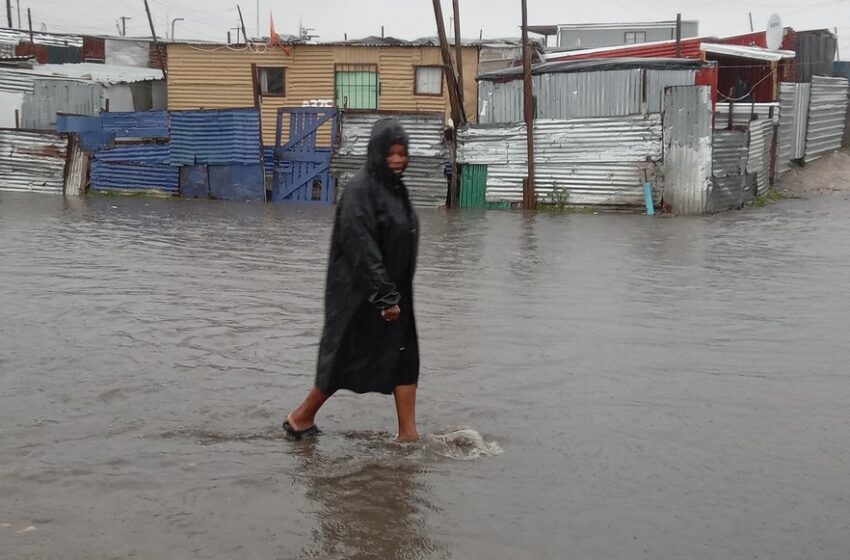How does the cold front affect me as a South African?

Weekend weather in South Africa: Cold mornings, mild sunshine ahead. Photo: Sandiso Phaliso
You wake up before sunrise to prepare for work or get your kids ready for school. You open the door—and it hits you. That biting wind. The chill that creeps through your bones. Another cold front has arrived.
But beyond the freezing toes, hot water bottles, and memes on your WhatsApp group, have you ever asked yourself: How does the cold front really affect me as a South African?
Let’s break it down.
It Affects How You Feel—And That’s Not Just in Your Head
Whether you’re in Soweto, Sutherland, or the Southern Cape, you’ve probably noticed how cold fronts bring more than just a dip in temperature. You feel more tired. Slower. Less motivated. That’s not laziness—it’s science.
Cold weather slows your blood circulation, which affects your energy levels and can make joints feel stiff. If you suffer from conditions like arthritis, asthma, or sinusitis, you may feel worse during a cold front. Children and older adults are particularly vulnerable, often catching colds or flu as their immune systems struggle with the sudden temperature shifts.
For many, winter is not just uncomfortable—it’s unhealthy.
It Affects Your Pocket
Think of how much more you spend during a cold snap: higher electricity bills to run heaters or boil hot water, more money on warm clothes, thicker blankets, and sometimes even over-the-counter flu medication. If you rely on gas or paraffin, prices tend to go up in winter.
Now, imagine you’re one of millions of South Africans earning below the national average—or unemployed. For you, a cold front could mean having to choose between food and firewood.
The impact on your wallet is real, and it hits the most vulnerable the hardest.
It Affects Your Work and Commute
Ever had your taxi arrive late because the driver struggled to start the vehicle in the cold? Or sat in early morning traffic because fog delayed visibility? Cold fronts don’t just affect your mood—they affect movement.
From slippery roads in snowy mountain passes to flooded urban streets in Cape Town or Durban, cold fronts make transportation riskier and slower. If you work outdoors—as a builder, street vendor, security guard, or hawker—your income may drop because fewer people are out and about, or because the weather makes it unsafe to operate.
It Affects Your Children
If you’re a parent, you know how hard it is to send your child to school in the cold. Some kids don’t even have socks or warm jackets. Many South African classrooms, especially in rural or township schools, are not insulated or heated. Some learners sit all day in wet uniforms, shivering while trying to focus.
Cold weather increases absenteeism, illness, and even emotional stress for children who feel the chill more than adults. And when schools aren’t winter-ready, the effect is felt in their education.
READ ALSO
What South African schools and parents should know about cold front safety
South Africa’s cold front is here: 10 essential safety tips to stay warm and protected
Cold Front: These areas in South Africa are expected to be worst hit
What should South Africans know about this week’s cold front — and how can you stay safe?
It Affects Your Meals and Mood
Cold weather often calls for warm, hearty meals. But when power outages hit during cold fronts (as they often do), families struggle to cook. Those using prepaid electricity or gas stoves may find themselves running out at the worst possible time.
Beyond physical discomfort, cold weather can also affect your mood. Experts link long cold spells to seasonal depression—feeling more anxious, withdrawn, or hopeless. For those already battling mental health challenges or living alone, this can be an emotionally draining time.
It Affects How Safe You Feel at Home
Not all homes in South Africa are made for winter. Tin shacks and informal dwellings often have leaks, drafts, and no insulation. Even RDP houses can be cold and damp without carpeting, ceiling insulation, or heating.
For many, a cold front means sleeping in a jacket under three layers of blankets—or worse, lighting an open flame indoors, which comes with the risk of fire or carbon monoxide poisoning. It’s not just about discomfort. It’s about dignity and safety.
It Affects What You Need to Prepare For
If you know a cold front is coming (and you should—thanks to the South African Weather Service and media platforms, you need to be ready. Stock up on essentials. Wear thermal layers. Keep children indoors where possible. Check on elderly neighbors.
You also need to be mentally prepared. That means planning ahead—maybe waking up earlier to warm water for a bath, packing extra layers for the kids, or charging your devices in case load shedding hits. The cold front doesn’t care if you’re ready—but your wellbeing does.
So, What Can You Do About It?
You can’t control the weather, but you can take steps to manage its impact:
-
Stay Informed: Follow SAWS updates, news bulletins, and community WhatsApp groups for early warnings.
-
Layer Up: Dress in multiple layers. If you don’t have winter gear, look out for local clothing drives.
-
Save Energy: Use blankets and seal gaps around windows and doors to retain heat.
-
Check on Others: Share warmth, advice, and encouragement with neighbors, especially the elderly or homeless.
-
Speak Up: Call on your local municipality or ward councillor to address shelter conditions, flooded streets, or damaged infrastructure.

